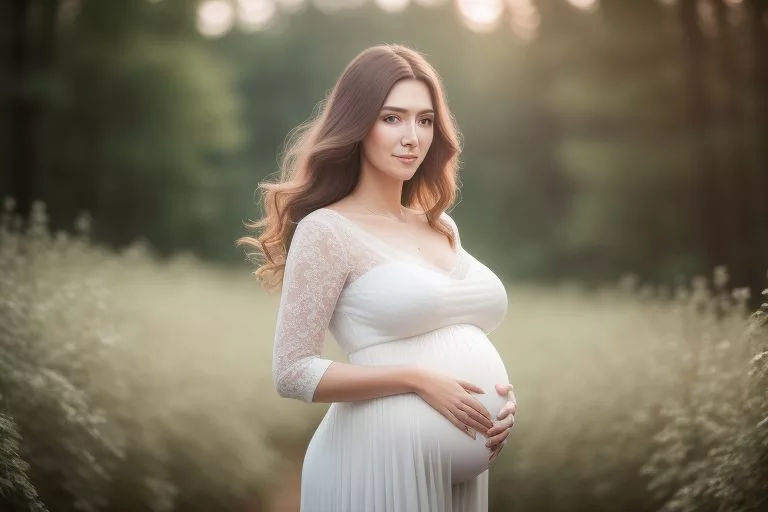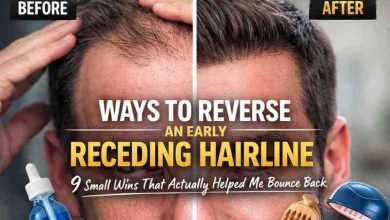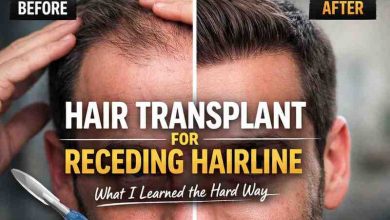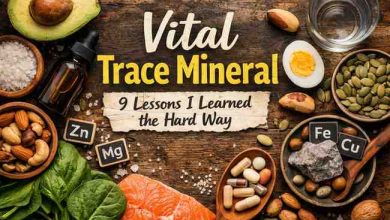

10 Reasons Why Your Best Age to Get Pregnant with Endometriosis Is Now
The decision to start a family is among the most profound choices we make in our lives. When endometriosis is part of the equation, this decision becomes even more complex. This comprehensive guide is designed to provide you with an in-depth understanding of why now may be the best age to get pregnant if you have endometriosis. We will delve into the challenges posed by endometriosis, the significance of the biological clock, recent advancements in medical treatments, emotional preparedness, financial stability, the crucial role of your partner’s support, maintaining a balanced lifestyle, nurturing a positive mindset, and the importance of seeking expert guidance. By the end of this guide, you’ll have a comprehensive perspective on this life-altering decision.
Understanding Endometriosis
Before we explore the reasons for considering this “best age,” let’s delve into understanding endometriosis. This condition is characterized by tissue similar to the lining of the uterus growing outside of it. Endometriosis often results in pain and can significantly impact fertility. Understanding your condition is fundamental to making well-informed choices about when to start a family.
Endometriosis can vary in severity, and its impact on fertility depends on several factors, including the extent of the disease, the presence of adhesions, and the individual’s overall health.
The Biological Clock and Fertility
One of the most crucial factors to consider when contemplating pregnancy is the biological clock. Fertility is not a constant; it evolves with age. For women with endometriosis, this condition can further exacerbate the impact of the biological clock on fertility.
Understanding the role of age in fertility is paramount. Fertility begins to decline in the late twenties, more significantly in the thirties, and even more rapidly after the age of 35. Women with endometriosis may experience a more pronounced decline in fertility due to factors such as the presence of adhesions or scarring that can affect the reproductive organs.
It’s essential to grasp that age plays a substantial role in determining the success of conception. As you age, not only does the quantity of your eggs decrease, but their quality may also diminish, potentially leading to complications in pregnancy.

Medical Advances and Treatments
One of the most compelling reasons to consider getting pregnant now, even with endometriosis, is the remarkable progress in medical science. In recent years, there have been significant advancements in the diagnosis and treatment of endometriosis-related fertility issues.
Advances in medical science have expanded the range of options available to women facing fertility challenges due to endometriosis. The following are notable medical advances and treatments that have transformed the landscape for women with endometriosis:
Laparoscopic Surgery
Laparoscopic surgery is a minimally invasive surgical procedure used to diagnose and treat endometriosis. It allows for the removal of endometrial tissue and adhesions, potentially improving fertility.
Ovulation-Stimulating Medications
These medications stimulate the ovaries to produce multiple eggs, increasing the chances of conception.
Intrauterine Insemination (IUI)
IUI is a procedure in which washed and concentrated sperm are placed directly into the uterus. It can be an effective treatment for infertility related to endometriosis.
In Vitro Fertilization (IVF)
IVF involves fertilizing eggs with sperm in a laboratory and then transferring the resulting embryos into the uterus. IVF can be particularly beneficial for women with severe endometriosis.
These advancements have expanded the range of options available to women with endometriosis who wish to conceive. While fertility challenges still exist, these treatments have provided renewed hope and improved prospects for successful pregnancies.

Emotional Readiness
Becoming a parent is a profound emotional journey, and being emotionally prepared is just as important as being physically ready. The emotional readiness to embrace the responsibilities of parenthood is a vital aspect of family planning.
The decision to have a child often entails a significant shift in one’s life. It’s essential to consider whether you and your partner are ready for the emotional challenges and rewards of parenthood. Some questions to ponder include:
Are you both excited about the prospect of becoming parents?
Are you prepared for the changes and responsibilities that come with raising a child?
Have you discussed your parenting values and goals?
Are you emotionally resilient and capable of adapting to the demands of parenthood?
Have you addressed any concerns or anxieties related to parenting?
Preparing for parenthood isn’t just about the physical aspects of having a child; it’s also about nurturing a healthy emotional environment for your future family.
Financial Stability
Another crucial factor to consider when determining the best age to get pregnant is financial stability. Raising a child demands not only love and care but also financial resources. It’s important to be financially prepared, as this can reduce stress and provide a secure environment for your child to grow and thrive.
Consider the following financial aspects when contemplating parenthood:
Have you assessed your current financial situation, including income, savings, and expenses?
Are you financially capable of supporting a child, including education, healthcare, and day-to-day needs?
Do you have a budget or financial plan in place to ensure that you can provide for your child’s future?
Financial stability is a cornerstone of responsible parenthood, and it’s wise to address this aspect before embarking on the journey of having a child.
Partner’s Support
The support and commitment of your partner are invaluable when navigating the complexities of endometriosis and fertility. Your partner’s understanding, empathy, and active involvement in the journey are crucial for building a healthy family life.
Balanced Lifestyle
A balanced lifestyle, characterized by a healthy diet and regular exercise, can significantly contribute to a successful pregnancy. Your lifestyle choices influence your overall health, including your reproductive health. Creating the right environment for yourself and your future child is essential.
Here are some lifestyle factors to consider:
Diet: Maintaining a balanced and nutritious diet is essential for overall health and fertility. Foods rich in antioxidants, vitamins, and minerals can support reproductive health. Conversely, an unhealthy diet can have a negative impact on fertility.
Exercise: Regular physical activity is beneficial for maintaining a healthy weight and overall well-being. However, excessive exercise can sometimes interfere with reproductive function. Striking the right balance is key.
Stress Management: High stress levels can affect fertility. Implementing stress-reduction techniques, such as yoga, meditation, or mindfulness, can support your emotional and reproductive health.
Positive Mindset
A positive mindset can overcome many challenges. Believing in your ability to conceive and maintaining a hopeful outlook on the journey can profoundly impact your chances of success. The power of positive thinking should not be underestimated.
Expert Guidance
Seeking guidance from medical professionals and fertility experts is a pivotal step in your journey to parenthood. These experts can provide valuable insights, personalized advice, and treatments tailored to your specific situation.
Here’s how expert guidance can be beneficial:
Accurate Diagnosis: Experts can accurately diagnose the extent and severity of endometriosis, helping to determine the most appropriate treatment approach.
Personalized Treatment: Fertility experts can develop personalized treatment plans that consider your unique medical history and condition.
Assisted Reproductive Technologies: When necessary, fertility experts can offer advanced techniques like in vitro fertilization (IVF) to improve your chances of conceiving.
Emotional Support: Fertility experts and support groups can offer emotional support, which can be particularly helpful during the emotional rollercoaster of fertility treatments.
FAQs
Q1: Can I get pregnant with endometriosis at any age?
A1: While it is possible to conceive with endometriosis at any age, it is generally easier in your younger years due to better fertility. However, advances in medical treatments provide options for older women as well.
Q2: What are the fertility treatment options for women with endometriosis?
A2: Fertility treatments may include ovulation-stimulating medications, intrauterine insemination, or in vitro fertilization (IVF). The choice of treatment depends on your specific circumstances.
Q3: How can I support a partner with endometriosis on the journey to parenthood?
A3: Supporting a partner with endometriosis involves understanding their challenges, attending medical appointments together, providing emotional support, and actively participating in the decision-making process.
Conclusion
The decision of when to get pregnant, especially when dealing with endometriosis, is a deeply personal one, influenced by numerous factors. Understanding your condition, being emotionally ready, financially stable, and having your partner’s support are all crucial aspects. Maintaining a positive mindset, embracing a balanced lifestyle, and seeking expert guidance can significantly enhance your chances of success.







